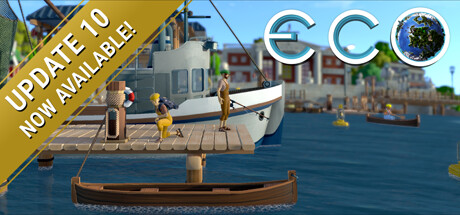This article is for leaders of Eco towns or servers who are looking for a straightforward model to create a functional currency system.
Inspired by Nature: The three sisters model
- Corn: Provides a strong stalk for the beans to climb.
- Beans: Fix nitrogen in the soil, fertilizing the crops.
- Squash: Shades the soil, preventing weed growth and conserving moisture.
This symbiotic relationship is a great inspiration for designing a currency system in Eco by Strange Loop Games[play.eco].
Garlan Miles, CC BY-SA 4.0 <https://commons.wikimedia.org/wiki/File:Three_Sisters_4.jpg>, via Wikimedia Commons
Part 1. Common currency
So, much like you plant corn first in the original system, the very first step here is to adopt a common currency.
Don’t cheat minted currency. Consider a collective agreed-upon currency instead. The “Chief’s credits” works very well when players naturally adopt the currency of a natural leader or the admin. In fact, discussing this idea is one more reason to hold a session-0 before the server opens.
Part 2. Active currency distribution
“They’re you go kid. Now do something with it”
So money distribution is first about finding means to establish reference prices for basic resources (wood, clay, rocks, plants) to create a stable market.
If you are lucky enough to play with a small group of friends, you might simply agree to a reference sheet[docs.google.com]. A more common solution is to begin with a town hall store that buys and sell each basic resources (at the same price). The store can both act as a reference and allow you to gather materials to launch the first projects.
Second, currency distribution is a key element in keeping your citizens busy and motivated. Servers that rely on trade between individual players are eventually weakened due to local bottlenecks, clusters, protectionists measures and other natural phenomenons. Community projects provide opportunities and allow you to strategically stimulate economic activity. This is especially great for newcomers or players who feel left out when their skills are temporarily less useful.
Active distribution is a component that can take many forms. For example, you may go with a serious government-centered solution with contracts and call for proposals. Big communities have their own ministers as well (it’s good to share the weight of the crown). You may also consider a decentralised approach where individuals each receive the same amount of money to initiate projects.
Part 3. Currency return
After a few days, you may notice trade slows down again as people with a lot of money seems to lack the motivation to sell items. Luck, experience, skills unbalance, dumping, exploitation tricks and other factors are creating inequity and it seems the money you distribute is not doing much good anymore.
“Weeds are coming, we need to squash them !”
This is where the third component is useful: money flows back in the treasury of your town.
Eco offers a variety of taxation systems to fill that component. From the basic tax on sales available with the government table, you can explore creative solutions using laws: tax based on land, income, wealth, value of housing, etc.
But, there are others means to fill the treasury. Most public services can have some income (ex.: selling scrolls at the research center or a fee for storing taillings at the public dump).
You may also encourage public-private partnerships to fund projects and services (ex.: personal storage in a fablab). It’s time to be creative as long as it doesn’t ruin the fun.
“I waited a long time to drive my new truck because of a &??%$?! driving permit law on the server.”
A practical example
- During session 0 before the server opens, designate a leader for your town and adopt their currency from the start.
- The leader quickly makes a store and begins to buy basic resources to build the town hall and launch early research. Roads, fablabs, hotel, energy towers and other projects and distribution ideas will follow. Some players receive money to organize and fund the projects themselves (early ministers).
- Quickly vote a progressive wealth tax:
4 times per day, tax each citizen based on their total wealth * percentage (wealth/X). Where X is a factor that depends on the value of currency and the strength of the tax you want to create. I used x=700 on stable worlds where wood logs are worth 1 credit and where we planned a pool of 2000 credits per player.
A global strategic tool
- Common currency
- Active currency distribution
- Currency return
There is a sheer abundance of options and tools to use in Eco, but this models offers a generic structure upon which you may build a thriving town. I bet you will also quickly notice how you can use these components to make essential adjustments to the economy, such as reducing inequity and help mitigate skills unbalance.
About the author
And that wraps up our share on Eco: A simple model to make a working currency system. If you have any additional insights or tips to contribute, don’t hesitate to drop a comment below. For a more in-depth read, you can refer to the original article here by nodeldon, who deserves all the credit. Happy gaming!

